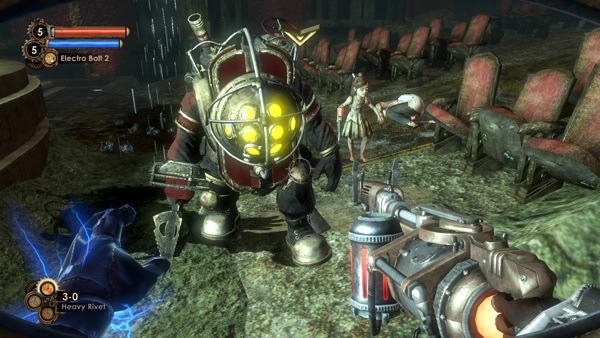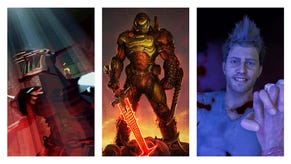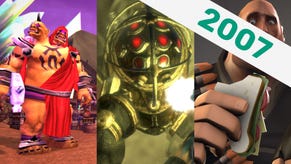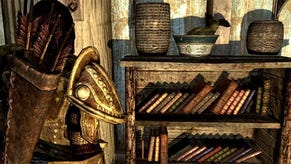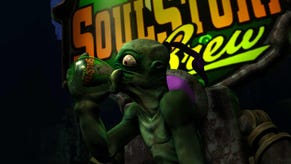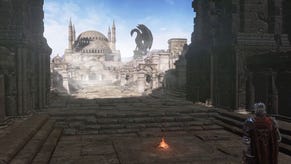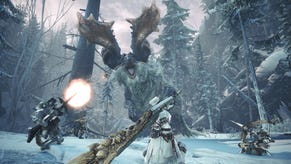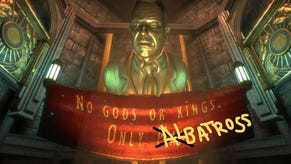Rapture In Paper: The Bioshock Novel
A tale of one city
Timing-wise, the long-in-development Bioshock prequel novel couldn't have landed at a worse one. Remember Rapture? That's right. It's the place that was so awesome, before we were blown away by Columbia a few weeks ago. In the mood to return? There's the rub...
The sad thing is that this is one of the better tie-in novels I've read, with just two major problems. The first is that while it sets out to chart the history of Rapture, from Andrew Ryan first deciding to build the place to the death of his effective conscience, engineer Bill McDonagh, but offers very little that we don't already know about its rise and fall, aside from a little padding. McDonagh now has a family desperate to escape for instance, while we get to know Ryan back in his days as a visionary, rather than the paranoid, power-hungry king of a doomed Atlantis.
One of my favourite details is how McDonagh got the job of building the impossible city in the first place. He was simply Ryan's plumber, who earned the man's respect by not trying to inflate his bill, and taking offense at the suggestion that he might. Ryan doesn't hand him the keys outright, simply gives him a more worthy test of his skills, but you can see that spark that the following years are destined to grind down - that of a true visionary who genuinely thought he was doing the right thing. There are cracks even at this point, from his hypocrisy in supporting Sander Cohen's unprofitable art to hiring an ex-cigarette girl as his assistant, and then his initial intake in Rapture being rich, patrician types... and of course, we know how it all turns out in the end... but you can at least see the passion that convinced so many people to buy into his dream.
The actual quality of the writing is good, and it's clear that author John Shirley has done his homework, unlike most tie-in books. Bioshock 2's characters are all here and integrated right from the start, and while there are a couple of minor continuity issues here and there, like Lamb's role in the construction of Ryan Amusements, most of the details are bang-on to the point I occasionally checked the wiki to compare versions of the story.
This isn't however a book to read if you haven't already played the games. I'm not sure why you would, but you wouldn't get much out of it. It's almost all dialogue driven, with very, very little description of the city itself - the assumption is that you know what Rapture looks like already and can fill in the gaps on your own. Likewise, with one exception, there really isn't much in the way of resolution to any of the plot points, all of which are handled by the games.
The frustrating thing about Rapture as a novel is that it's completely unnecessary. The Halo books could tell us more about the universe, the Dragon Age books can fill in backstory the main characters wouldn't know, and more... but in Bioshock, we know every major plot beat already. The idea of doing a prequel sounds obvious, but really standalone stories simply set in Rapture both before and during the war would have been a much better premise. Let's hear more about the Little Sisters orphanage, or a case from the PI in Pauper's Drop - go properly behind the scenes on one of Sander Cohen's plays, or see Tenenbaum's concentration camp past. The moments in Rapture that do this are by far the most effective, from seeing what happened before the city's founding, to individual moments like Lamb's takeover of Persephone or McDonagh's family's growing desperation to escape back to the surface world.
Unfortunately, as the book goes on, the need to hit every major point soon becomes an albatross - not helped by the fact that much of Bioshock's backstory is frankly pretty silly when you look at it in isolation. The book ends up having to dance between so many points of view to cover it all, and the pacing suffers for it. The worst case is near the end, when we get a page of Ryan throttling Jolene to death that cuts instantly to him walking through the market. That could be seen as a statement on the once Great Man's collapsing state of mind... but it comes across much more as a necessary plot point being struck off a very long To-Do list.
Despite the core problem, this is far from a bad tie-in novel. It does what it promises very well - retelling the rise and fall of Rapture in portable dead-tree form. If that's what you want, you won't be disappointed. It's just a shame that that's all it is, now that most of us have moved on. Hopefully if there's a similar tie-in book for Infinite, it'll aim for a similar level of writing quality and understanding of the universe... but land when people are more likely to care.


